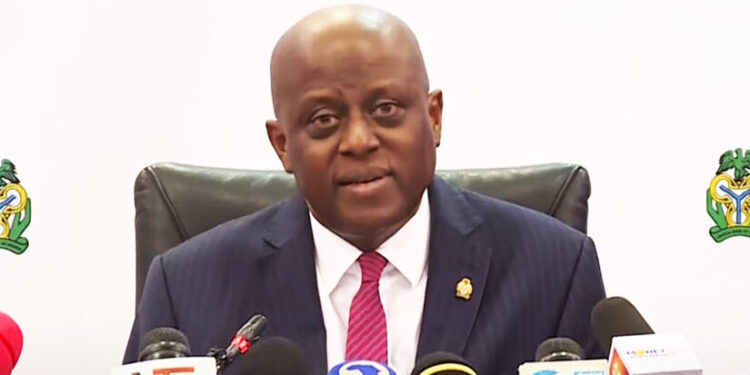The Central Bank of Nigeria (CBN) has raised the country’s Monetary Policy Rate (MPR) by 25 basis points, bringing it to 27.5% in a bid to tackle soaring inflation. This decision was announced by CBN Governor Olayemi Cardoso during a press briefing on Tuesday following the 298th Monetary Policy Committee (MPC) meeting in Abuja.
“The Committee was unanimous in its agreement to raise the monetary policy rate by 25 basis points to 27.5%,” Cardoso stated.
Combatting Inflation
The increase comes as Nigeria grapples with an inflation rate of 33.87% as of October 2024. The move reflects the MPC’s ongoing efforts to stabilize the economy amidst rising price pressures.
In addition to the MPR adjustment, the Cash Reserve Ratio (CRR) was maintained at 50% for deposit money banks and increased from 14% to 16% for merchant banks. The liquidity ratio remains unchanged at 30%, while the asymmetric corridor is retained at +500/-100 basis points around the MPR.
Economic Context
This marks the second consecutive rate hike by the MPC, which had previously raised the MPR by 50 basis points to 27.25% during its September meeting. At that time, the committee expressed concerns about core inflation, fiscal deficits, money supply growth, and food price pressures.
Although headline inflation showed signs of easing earlier in the year, core inflation remains elevated, driven largely by rising energy costs and structural economic challenges.
Monetary Policy Strategy
The latest adjustment aligns with the CBN’s focus on curbing inflation and achieving economic stability. By increasing the benchmark interest rate, the central bank aims to control inflationary pressures while maintaining a balance between liquidity and economic growth.
Governor Cardoso reaffirmed the committee’s commitment to its monetary policy measures, emphasizing that the decisions are designed to foster a stable economic environment.
Looking Ahead
With inflation continuing to pose challenges, the CBN’s decision underscores its determination to address Nigeria’s economic headwinds. However, as monetary tightening persists, businesses and households may face higher borrowing costs, potentially impacting economic activity in the near term.
The CBN’s monetary policy approach will remain under close scrutiny as the country navigates its path toward economic recovery and stability.









